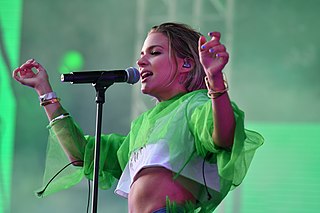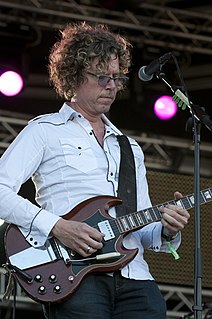A Quote by John Irving
I write the last line, and then I write the line before that. I find myself writing backwards for a while, until I have a solid sense of how that ending sounds and feels. You have to know what your voice sounds like at the end of the story, because it tells you how to sound when you begin.
Related Quotes
The book works better if I know everything I can about the ending. Not just what happens, but how it happens and what the language is; not just the last sentence, but enough of the sentences surrounding that last sentence to know what the tone of voice is. I imagined it as something almost musical. Then you are writing toward something; you know the sound of your voice at the end of the story. That's how you want to sound in those final sentences: the degree that it is uplifting or not, the degree that it is melancholic or not.
Writing is a weird thing because we can read, we know how to write a sentence. It's not like a trumpet where you have to get some skill before you can even produce a sound. It's misleading because it's hard to make stories. It seems like it should be easy to do but it's not. The more you write, the better you're going to get. Write and write and write. Try not to be hard on yourself.
I think that the way that I write stories is by instinct. You have some basic ideas - a character, or an image, or a situation that sounds compelling - and then you just feel your way around until you find the edges of your story. It's like going into a dark room... you stumble around until you find the walls and then inch your way to the light switch.
I began as a dramatist in the theater, so I'm always thinking about how a story moves, what it looks like, how to engage the senses, how dialogue sounds, what feels authentic and sounds real, what's funny, how to build distinctive and original characters - all the aspects of playwriting, scene-building, the architecture of dramatizing.
I sometimes have to write for a while before I figure it out, pretend that I know what I'm doing, sort of like ad-libbing on stage until you remember your line - you hope you sound convincing to the audience. The key is to have enough material, enough threads, so that there's something that can be satisfyingly drawn to a conclusion.
I myself, as I'm writing, don't know who did it. The readers and I are on the same ground. When I start to write a story, I don't know the conclusion at all and I don't know what's going to happen next. If there is a murder case as the first thing, I don't know who the killer is. I write the book because I would like to find out. If I know who the killer is, there's no purpose to writing the story.
There's a marvelous sense of mastery that comes with writing a sentence that sounds exactly as you want it to. It's like trying to write a song, making tiny tweaks, reading it out loud, shifting things to make it sound a certain way... Sometimes it feels like digging out of a hole, but sometimes it feels like flying. When it's working and the rhythm's there, it does feel like magic to me.
I was interested in the ways we can write biography. When you're first starting to write about your own life it feels so shapeless because you don't know how to make your own story cohesive. How do I pluck a story out of the entirety of what it means to be alive. It occurred to me recently that when you're telling a story about your own life, rather than taking a chunk, you're kinda like lifting a thread from a loom.
I think the first thing - if you want to be a writer - the first thing you need to do is write. Which sounds like an obvious piece of advice. But so many people have this feeling they want to be a writer and they love to read but they don't actually write very much. The main part of being a writer, though, is being profoundly alone for hours on end, uninterrupted by email or friends or children or romantic partners and really sinking into the work and writing. That's how I write. That's how writing gets done.
The lyrics seem to follow the music, and that's usually how I write. I write more about what comes out of my mouth while I'm writing the chords, and that seems to work better than filling up notebooks of what I think is really cool poetry, and try to put it on a song. That usually sounds like it's taped on.
The secret to writing sound effects is having a room you can be alone in, trying to make the sounds yourself, and seeing what comes out. It's similar to if you're writing a character talking with their mouth full: the only way I know to transcribe that is to stuff my fist in my mouth and write down what sounds I make when I try to talk.






































